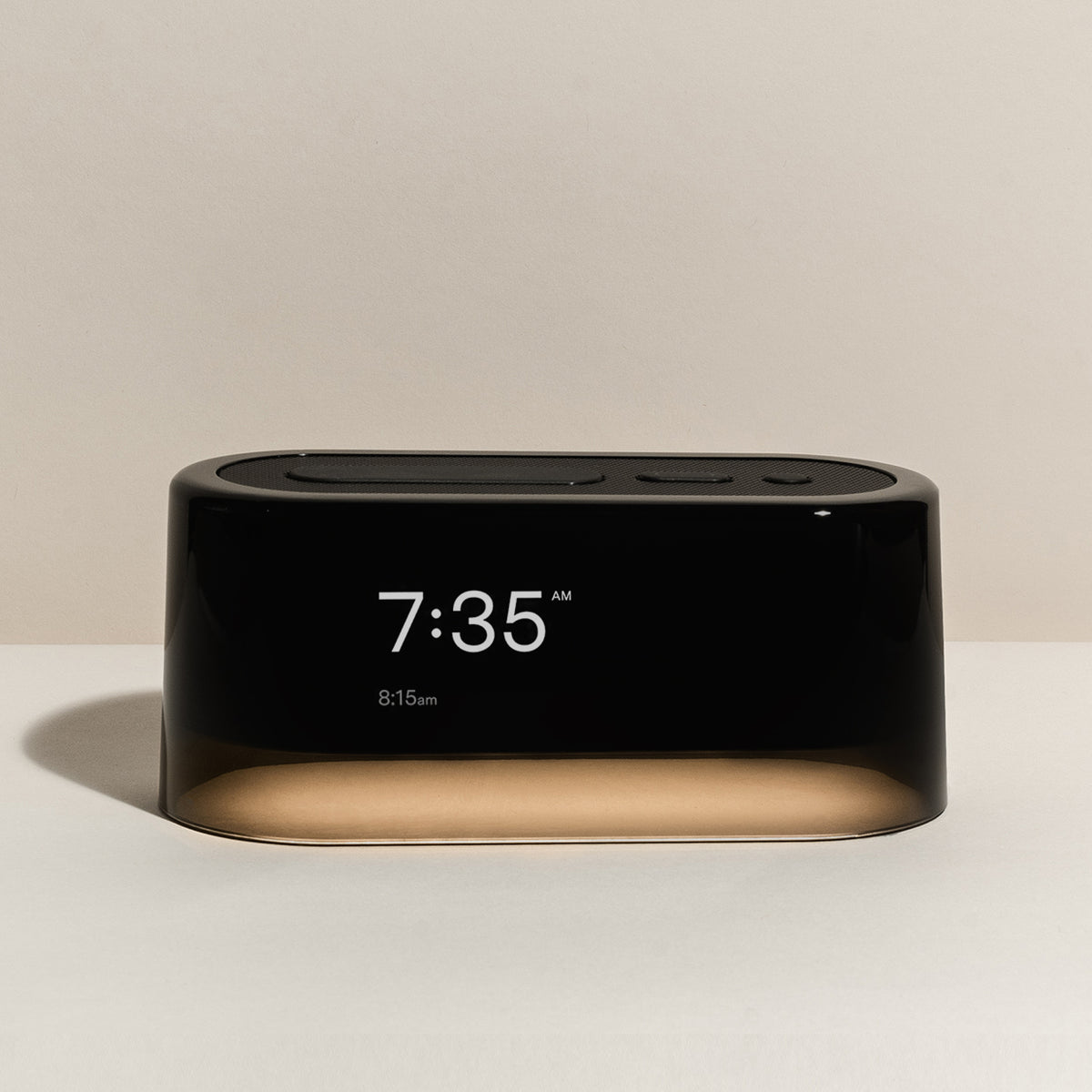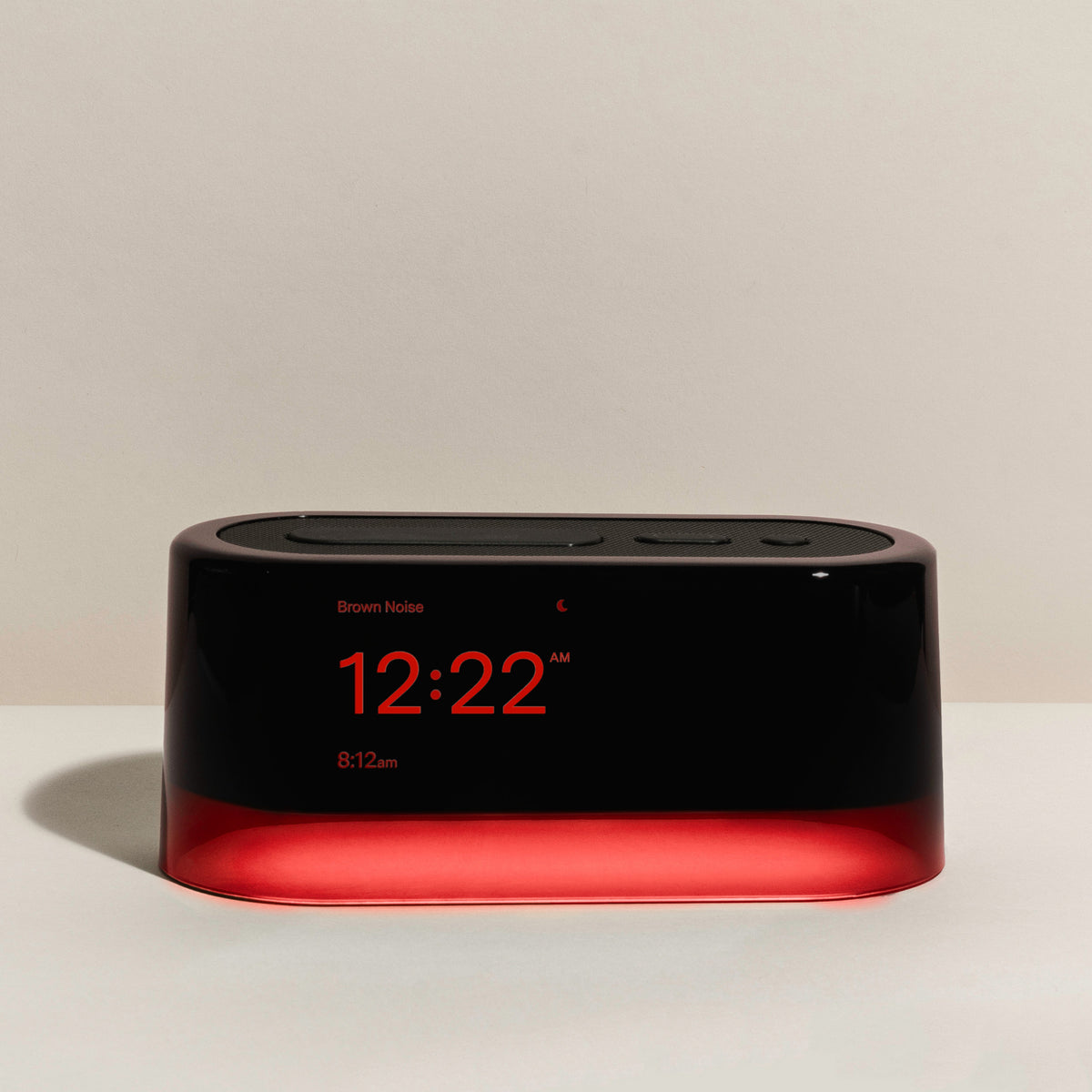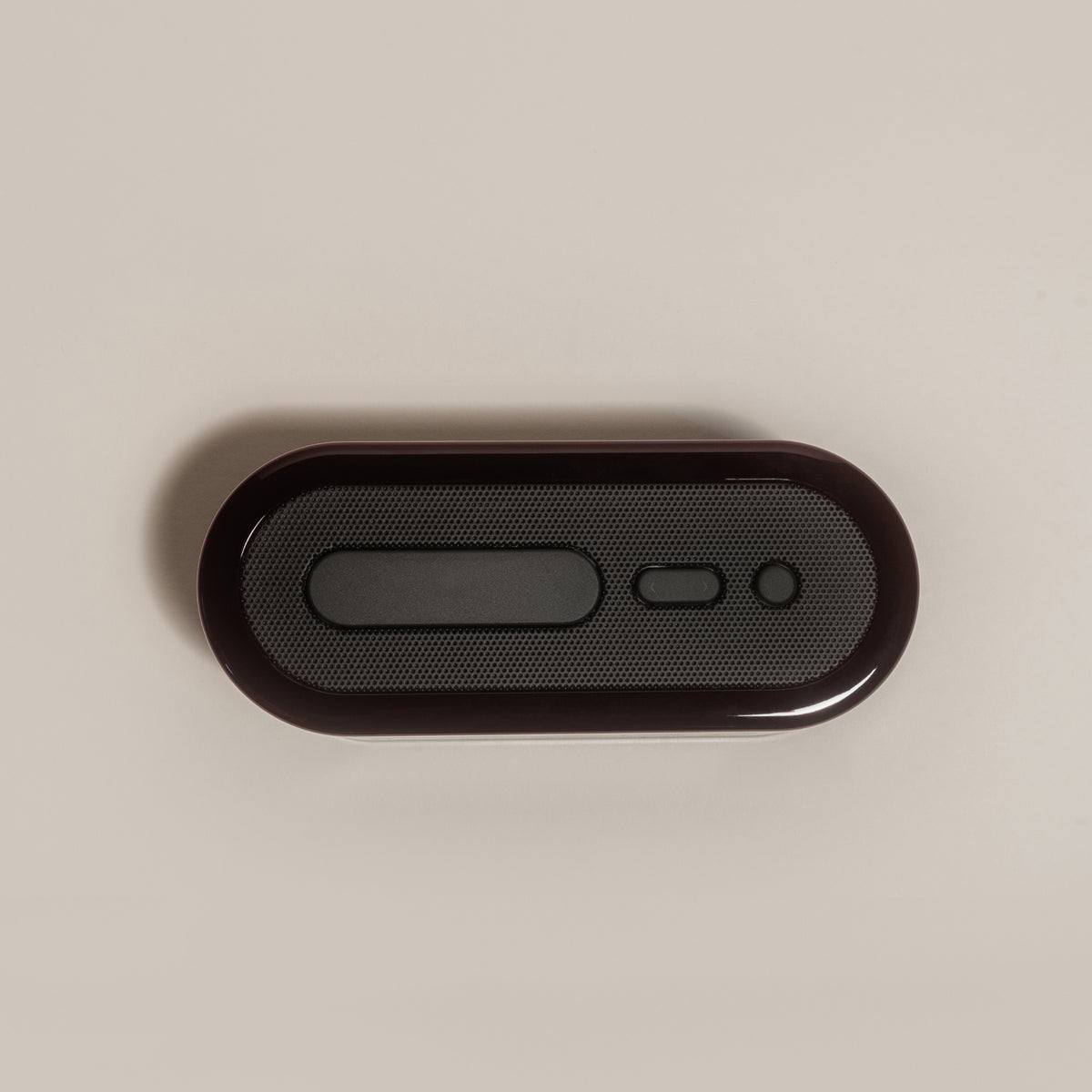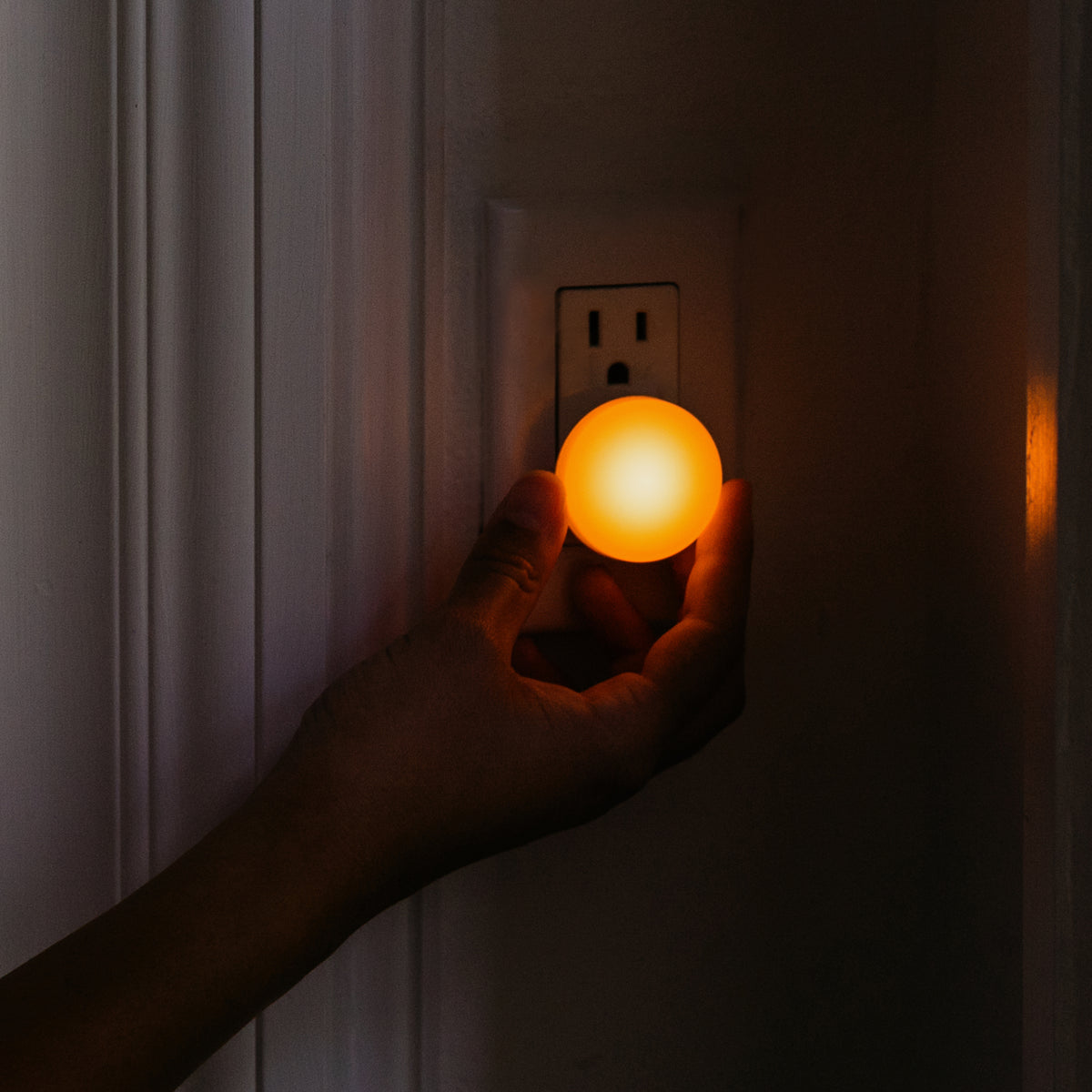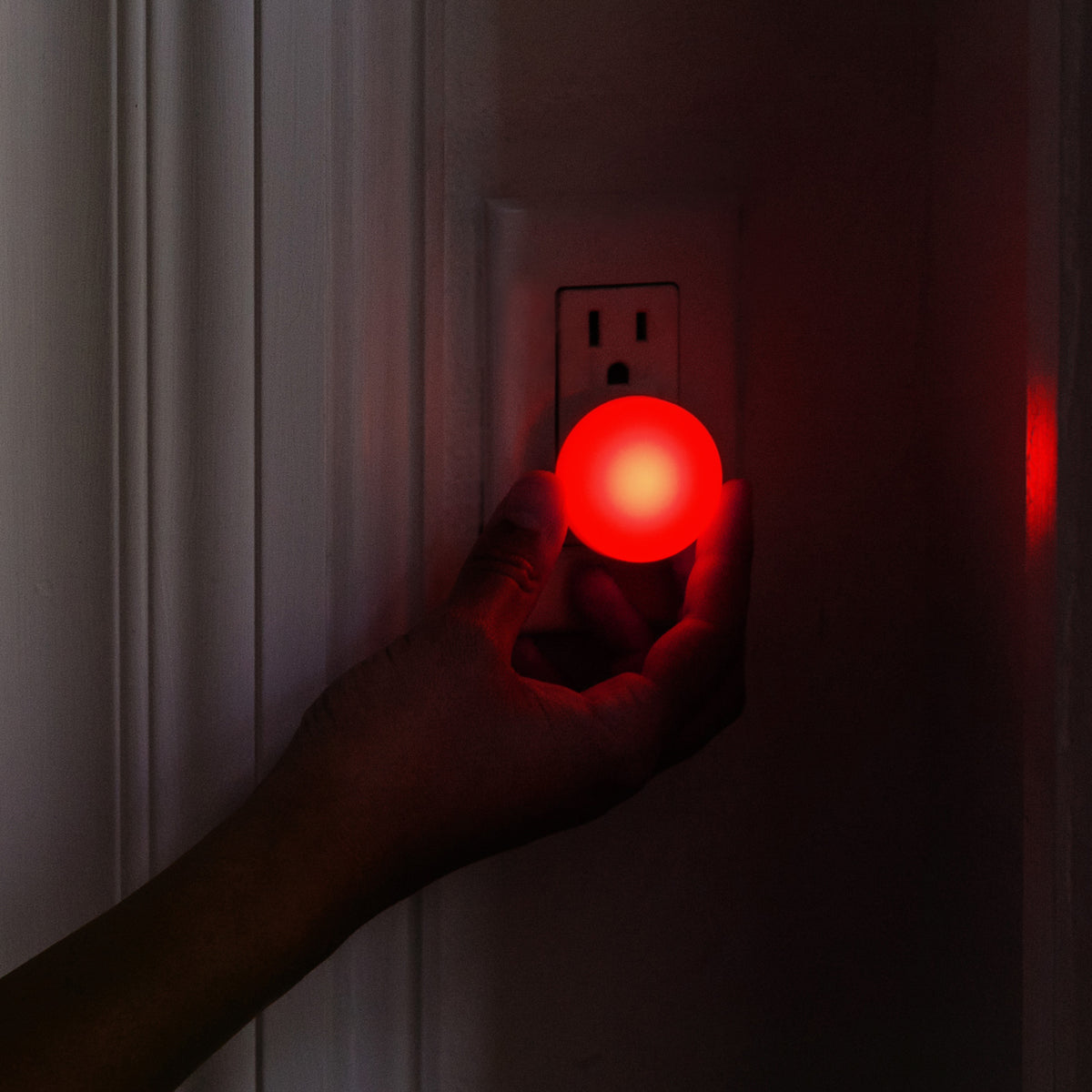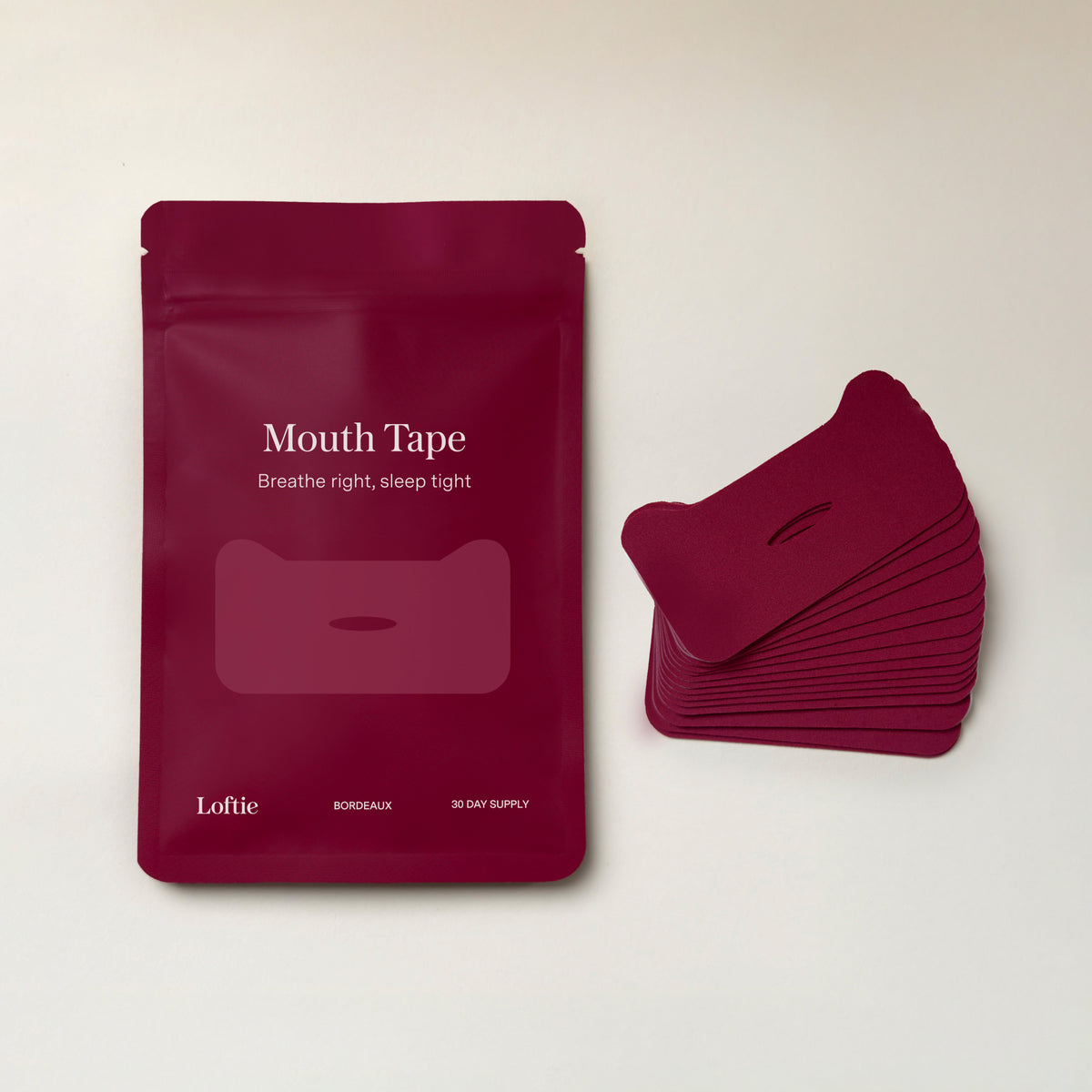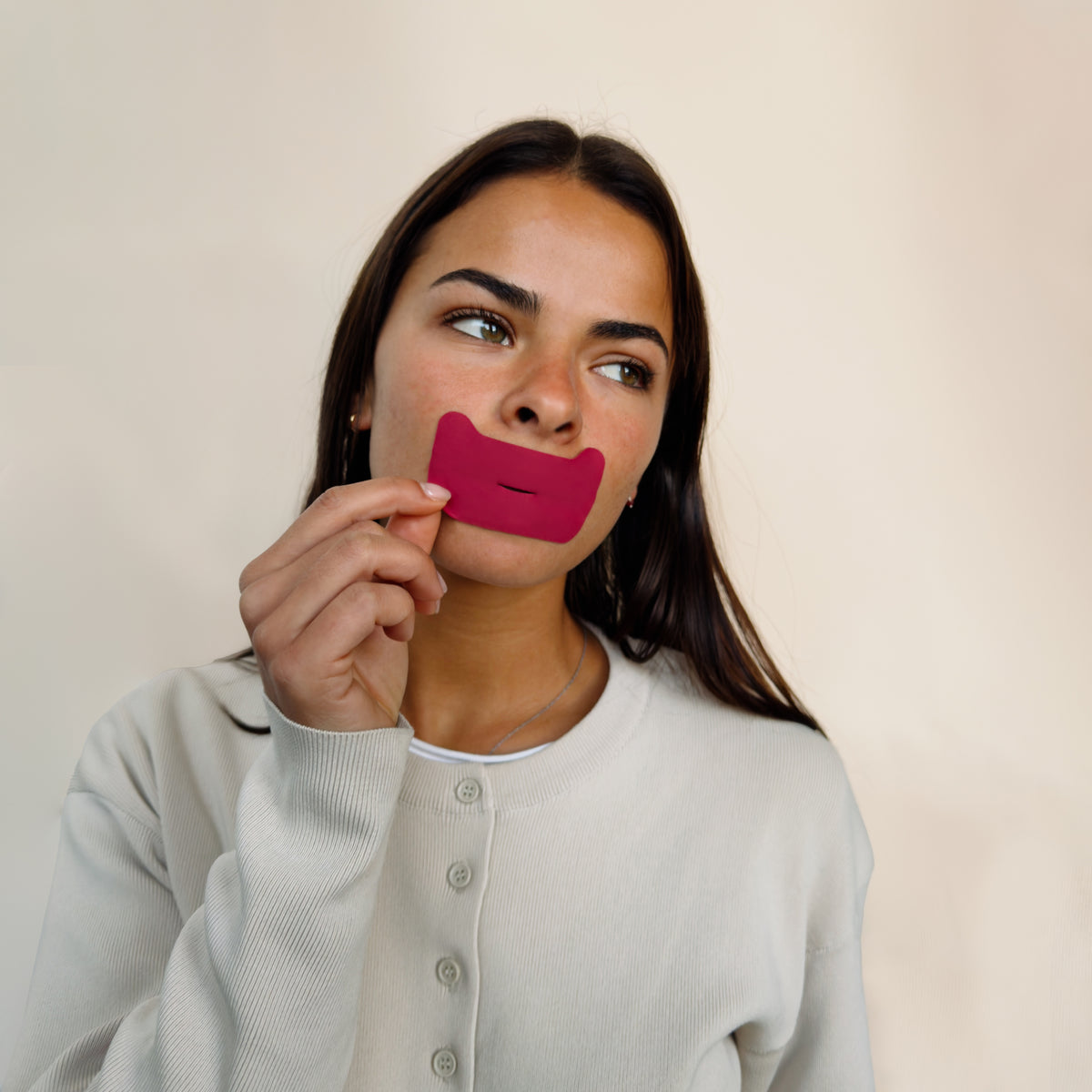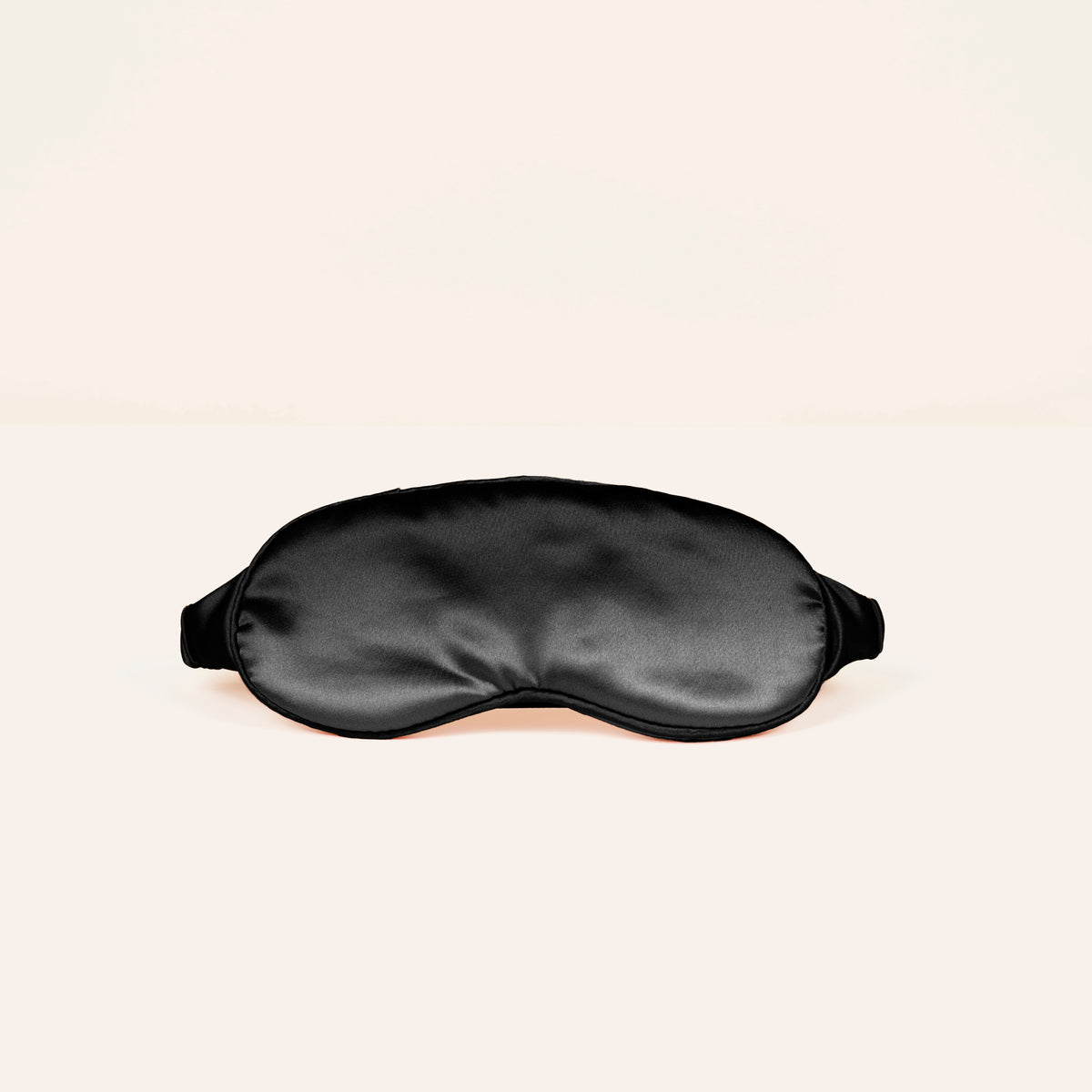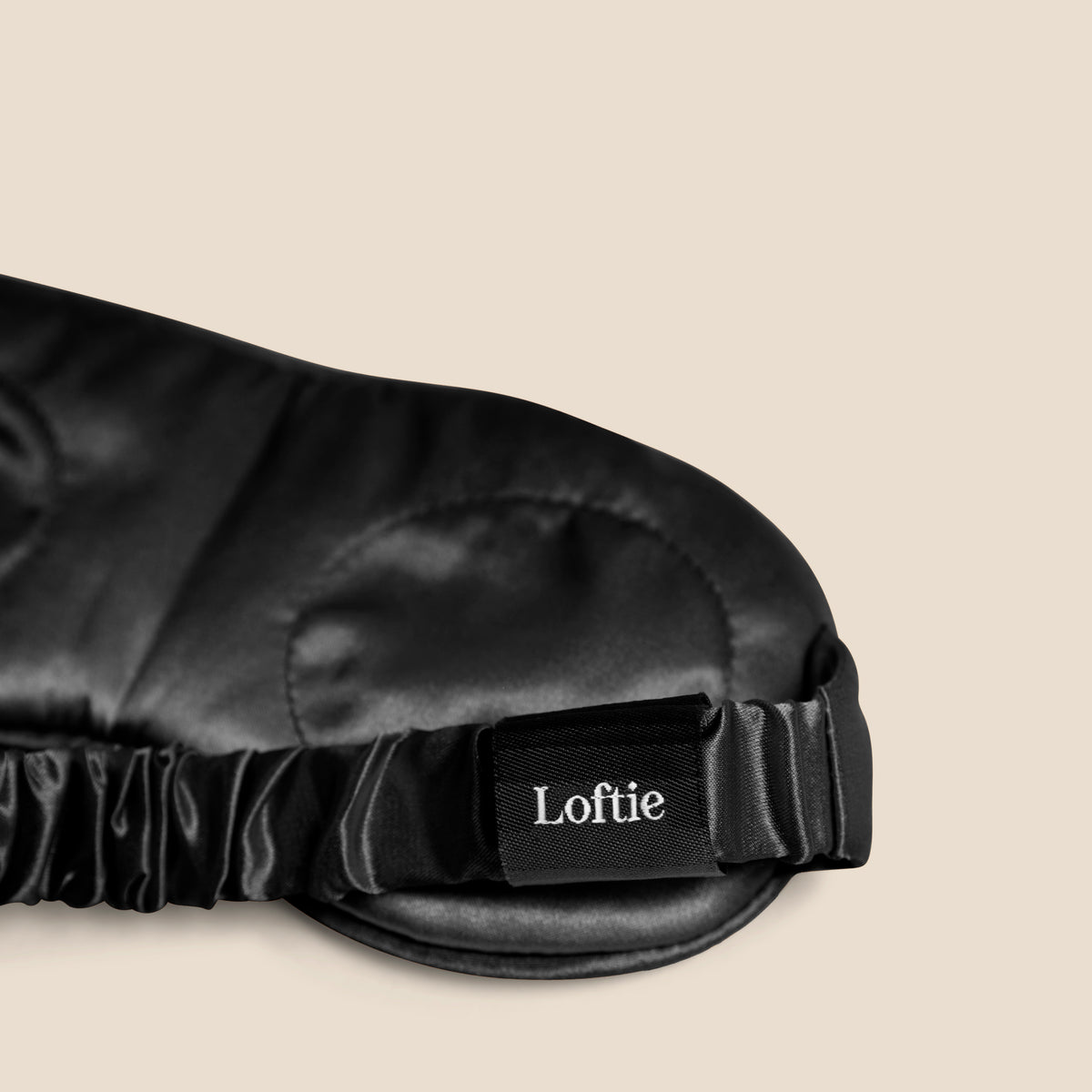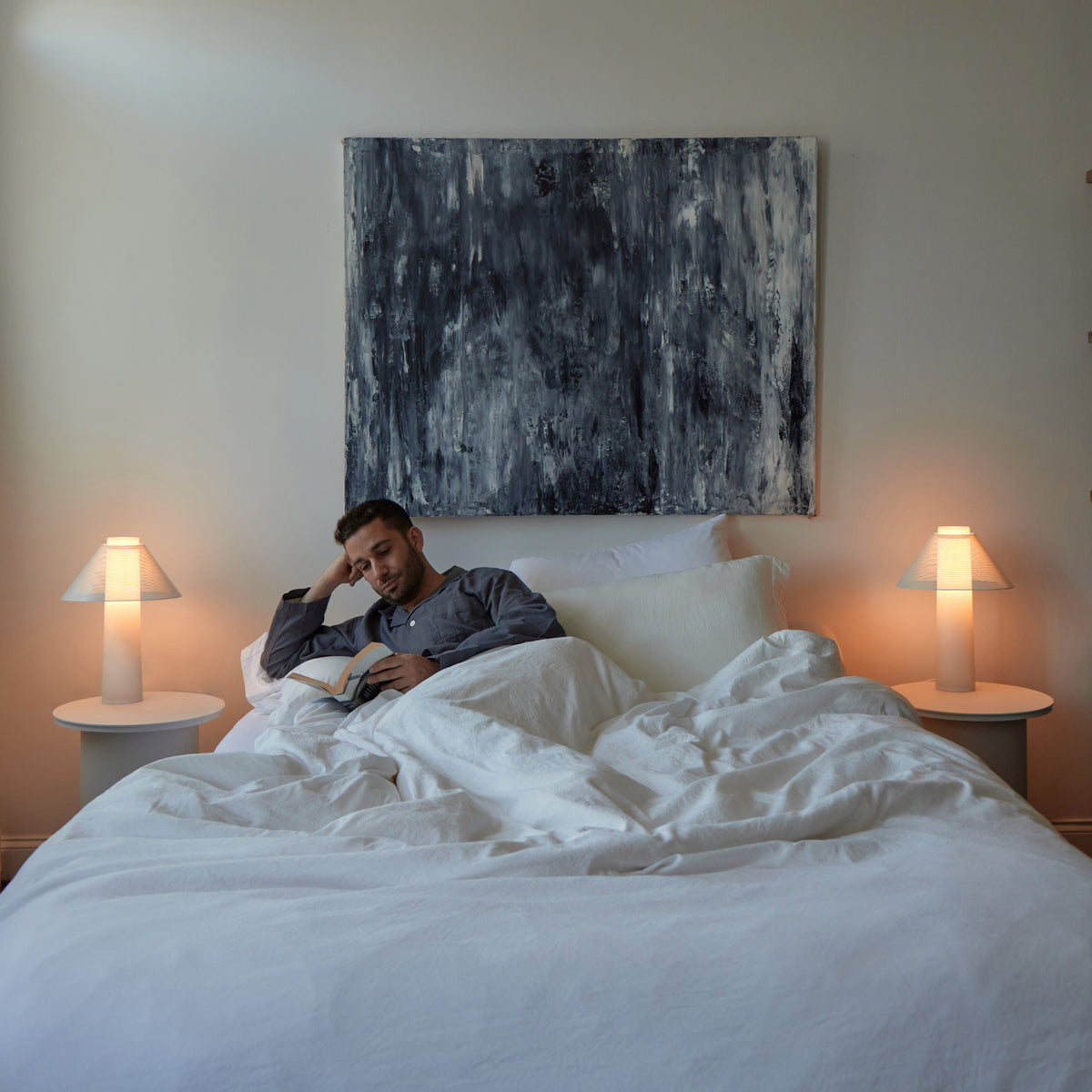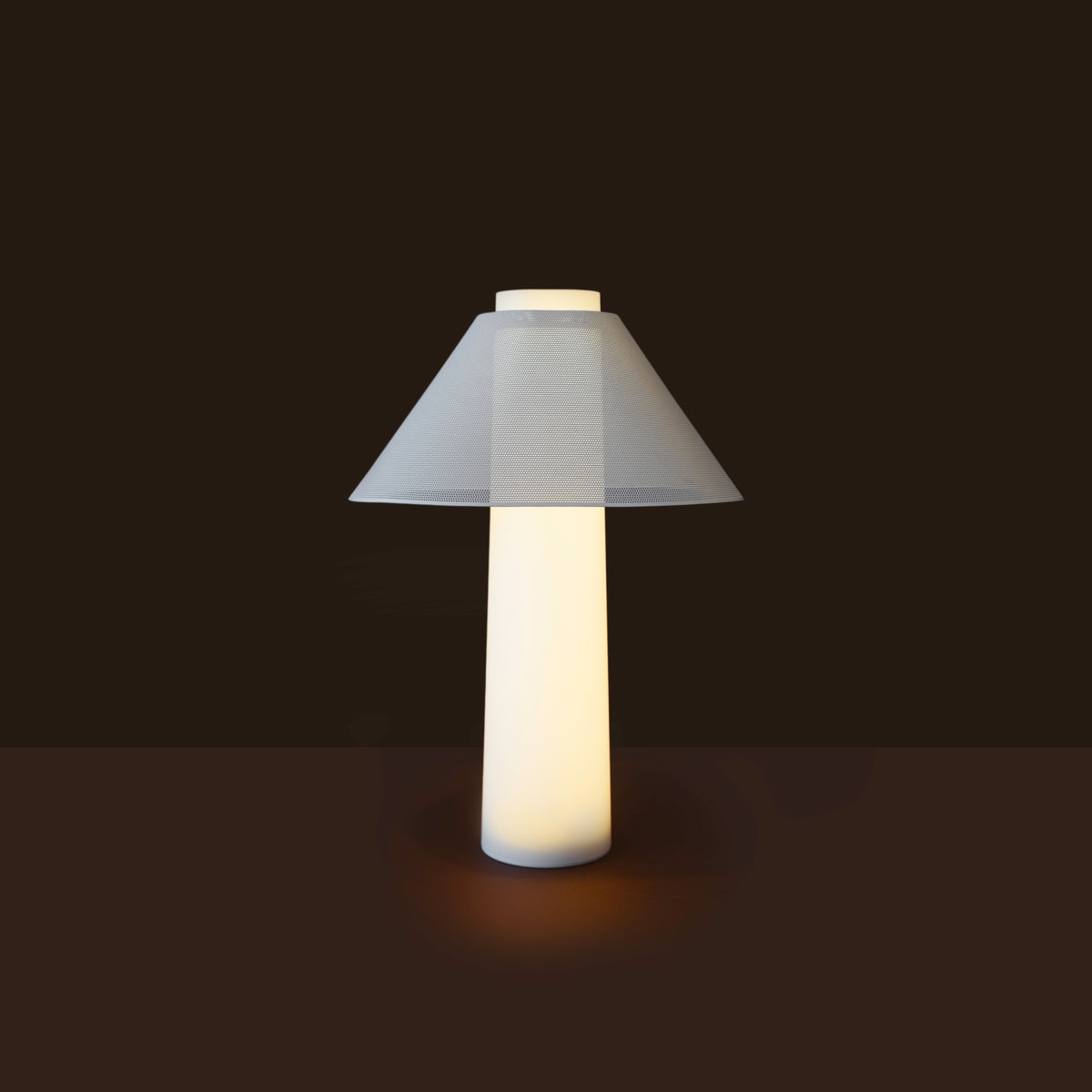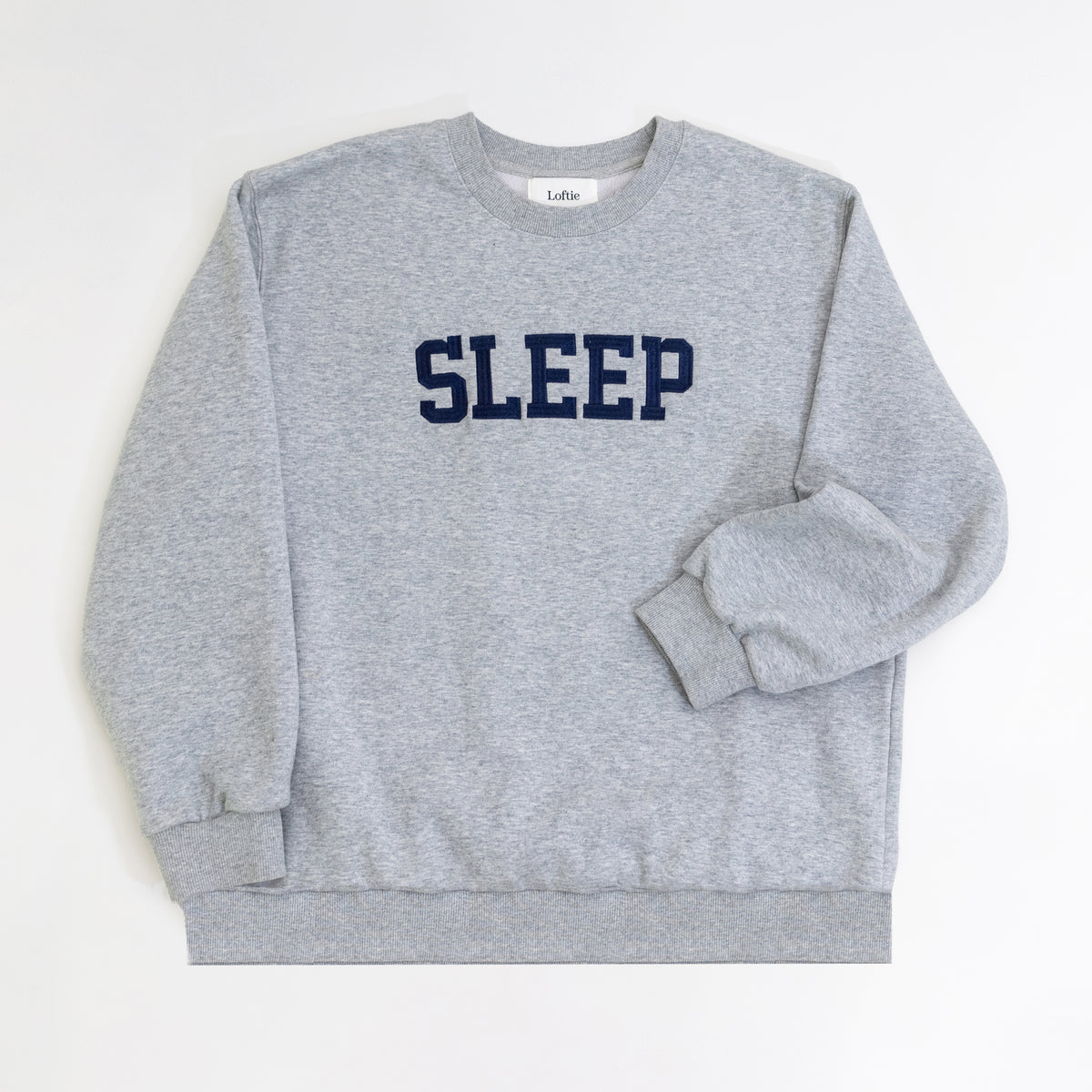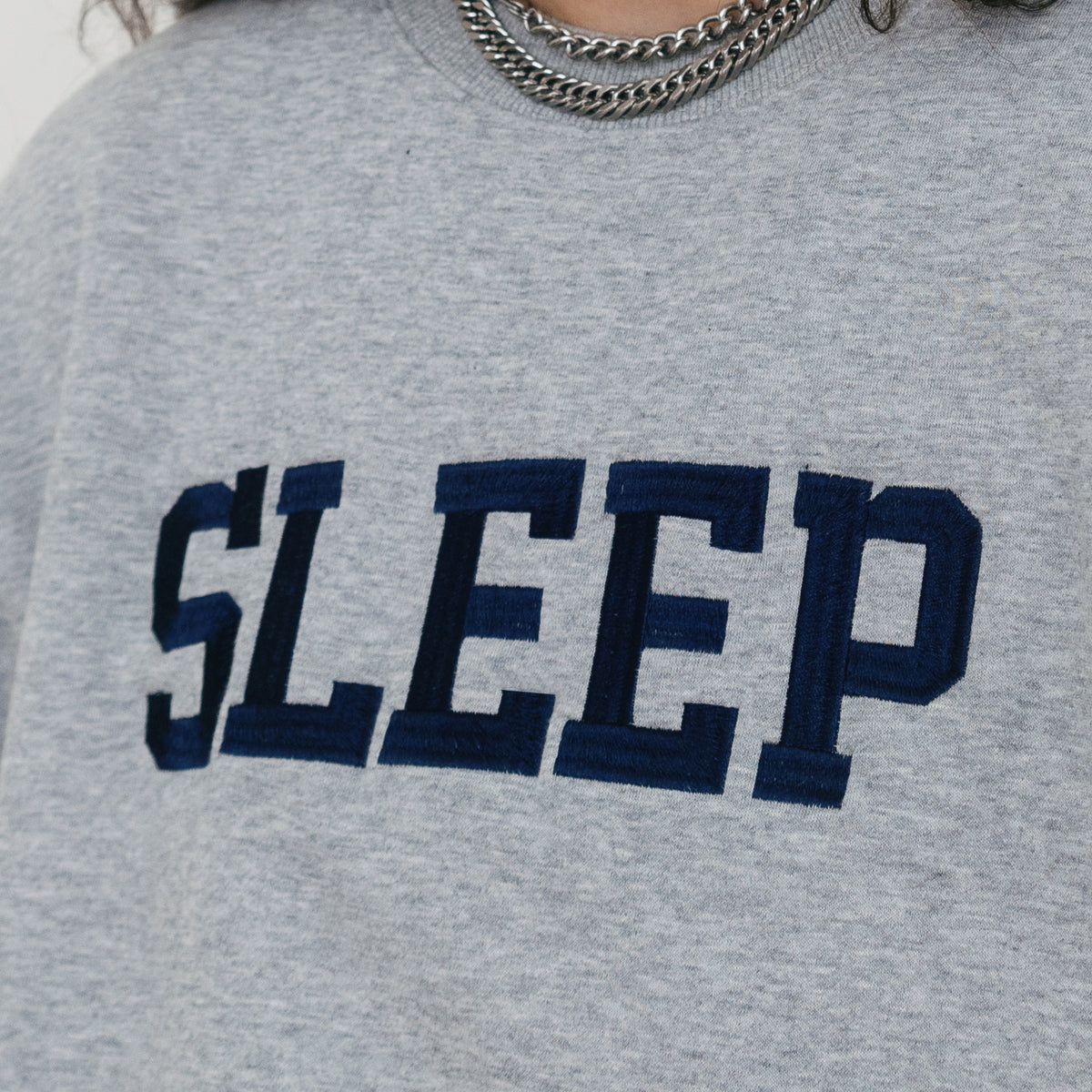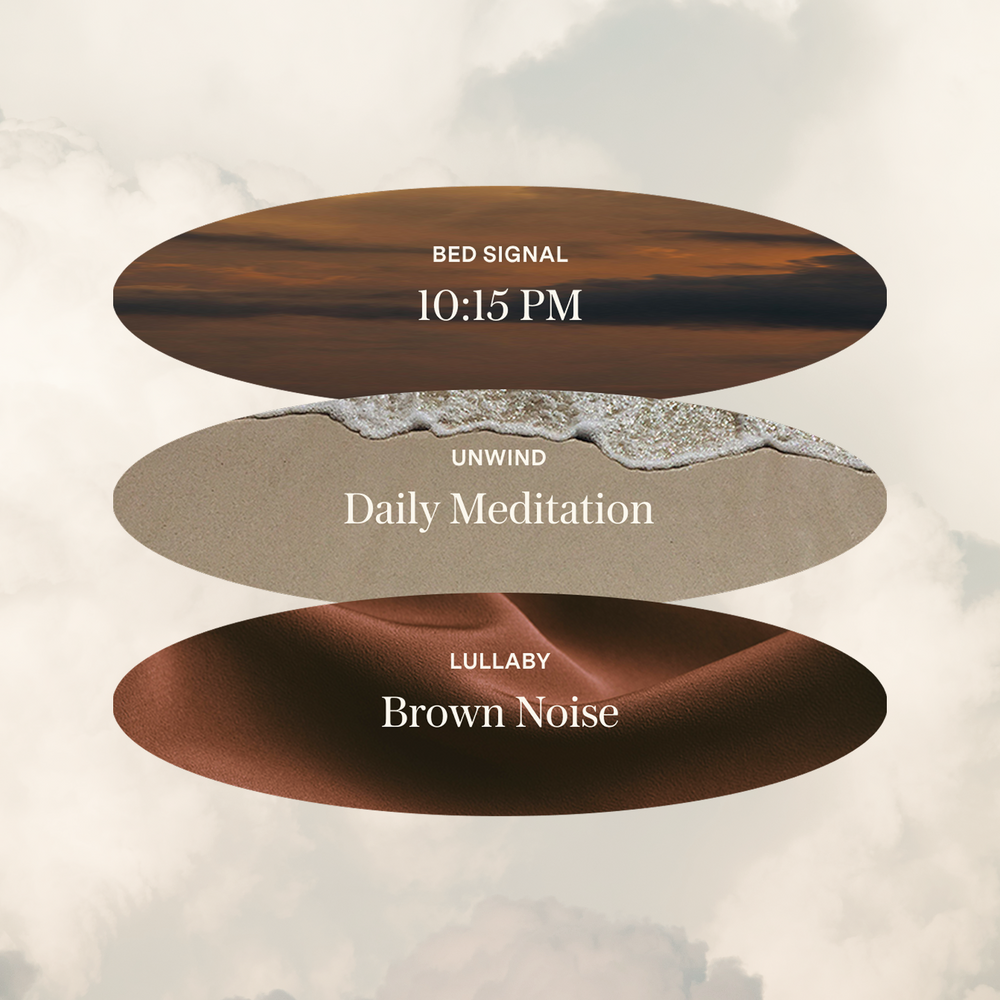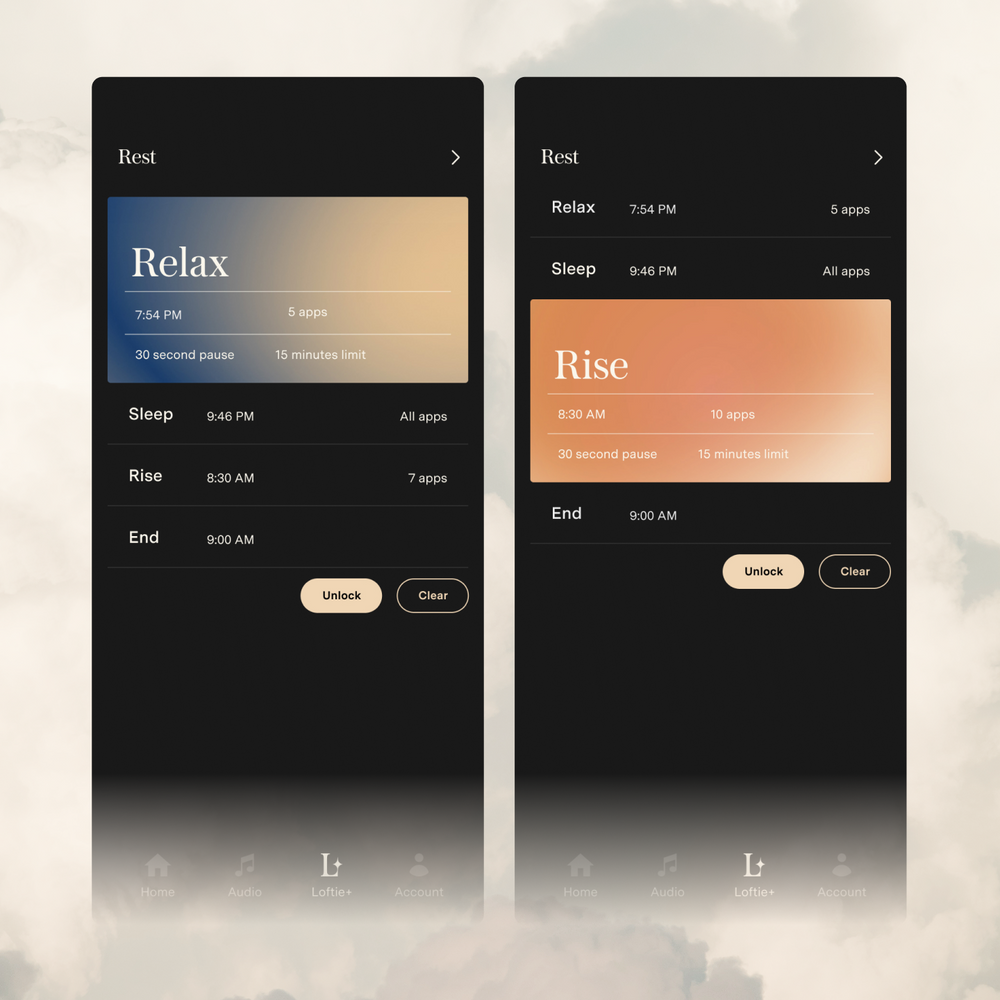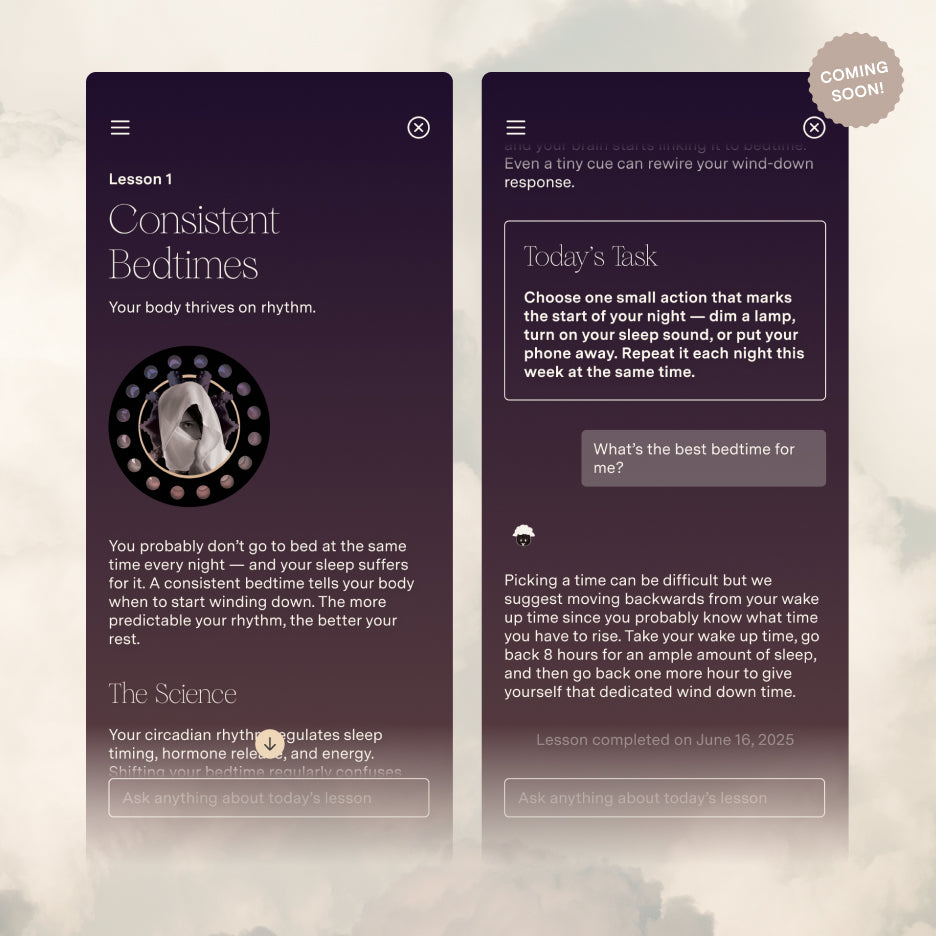For example, familiar sounds like a whirring fan, the ocean breeze, even light chatter can be comforting. There’s also growing interest in researching the effects of acoustic sounds for sleep. Learn about the best sounds for sleep that match your sleep preferences.
Classic White Noise
White noise is the most common among sleep sounds and has been shown to be highly effective for most. One study found patients who slept with white noise experienced higher quality sleep than those who didn’t. Researchers concluded that white noise masked surrounding noise levels which helped patients fall asleep and stay asleep in a noisy environment.White noise sounds like the static you hear when you accidentally tune cable TV to an unused channel. It’s identified by its consistency and tone. By definition, white noise encompasses all of the frequencies any person can possibly hear (about 20 Hertz to 20 thousand Hertz), and holds the potential to block out most outside sound. The consistency of white noise creates a masking effect, which can help people fall asleep faster. You can recreate white noise with a fan, air conditioner, humidifier, air purifier, or the Loftie Clock.
Pink Noise
Another among the ambient sounds that help you sleep is an emerging trend called pink noise. Pink noise is a mix of high and low frequencies, like the sound of falling rain or gentle ocean waves. It has a soft and calming quality similar to sounds found in nature. It has more power in the lower frequency than white noise but a similar sound-blocking effect.According to one study, people exposed to pink noise during sleep recorded more time in deep, slow-wave sleep. Another study out of Northwestern University’s Feinberg School of Medicine found that pink noise at night led to better memory recall. Pink noise can be helpful if you live in a particularly noisy area, a dorm, apartment complex, or busy street, because of its ability to drown sounds like voices, revving engines, or footsteps.
Dreamy Ocean Waves
The ocean has a way of making us feel relaxed and content. As described by professor of behavioural health and director of the Sleep, Health, and Society Collaboratory at Penn State University, Orfeu Buxton, PhD, ocean waves are “the sounds of non-threats.”For many of us beach and vacation go hand-in-hand so it’s not surprising that ocean waves are one of the most relaxing sounds for sleep. Gentle waves can be defined as pink noise whereas the more rhythmic crashing of waves would be brown noise, which is a deeper version of pink noise with more bass tones and low-frequency concentrated energy. This setting can help create a calm and meditative environment before bed which can be helpful for those who struggle to quiet the mind.
Serene Nature Sounds
Nature is the best sound to fall asleep to. Next time you’re on a camping trip, take note of how well you sleep. There’s actually a scientific reason for this that researchers discovered at University of Sussex. They had participants listen to recordings of nature sounds and artificial sounds while measuring their brain and nervous system activity. They found that participants’ nervous systems moved toward a more relaxed, “rest and digest” mode of activity after listening to recordings from nature.If you live in an environment filled with a lot of artificial noise, this could be contributing to your struggle to fall asleep. If you’re not able to get out into nature as easily try some of the nature settings on the Loftie Clock and recreate a relaxing evening in nature with crickets chirping and a calming breeze.
Relaxing Music
We all know the motivational effect music can have on us, but the same is true for when we sleep. Scientists at Hungary’s Semmelweis University found that listening to classical music at bedtime helped improve sleep quality in young adults with sleep problems. So while music can be loud and energizing, it can also help us drift into sleep. Not a classical music fan? Choose something with slow rhythm between 60 to 80 beats per minute.Soft Soothing Voices
If familiar voices were comforting as a kid, try ASMR (autonomous sensory meridian response). For some people, the sound of human voices can be especially soothing. ASMR is a term used to describe the tingling sensation from certain audio-visual stimuli. Research shows most people use ASMR for relaxation purposes and one study found participants reported using ASMR most frequently before bed. Guided relaxation and meditation has also been recognized as one of the best sleep sounds.Enjoy A Better Night’s Rest
As we all know not all sound is relaxing, so what works for one person may not be best for another. When you don’t have control of the noise in your sleep environment, like when you’re traveling, cohabitating, or welcoming a new addition to your family, sleep sounds can make all the difference. Easy additions to your bedroom that can make your space more relaxing on your terms are the Loftie Clock for soothing sounds and the Loftie Lamp for gradual light. If you’re not finding luck with one setting, try another. Our sleep can change depending on our lifestyle so having a variety of sleep sounds can increase your chances of getting your best rest every night.


